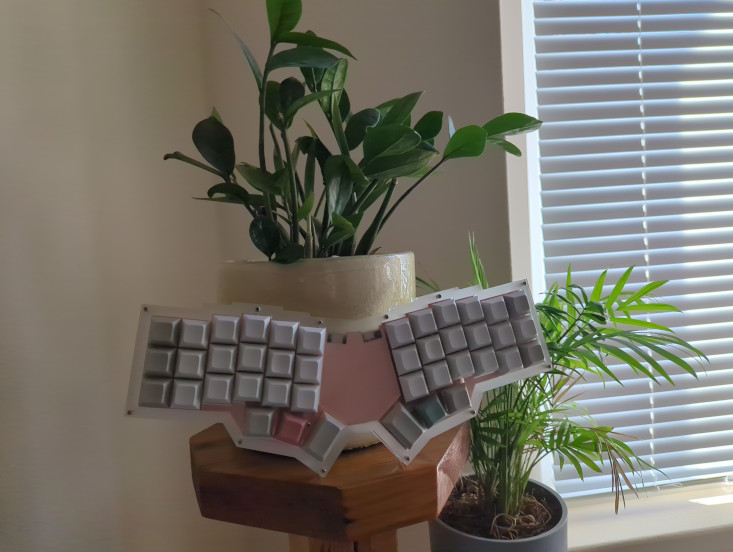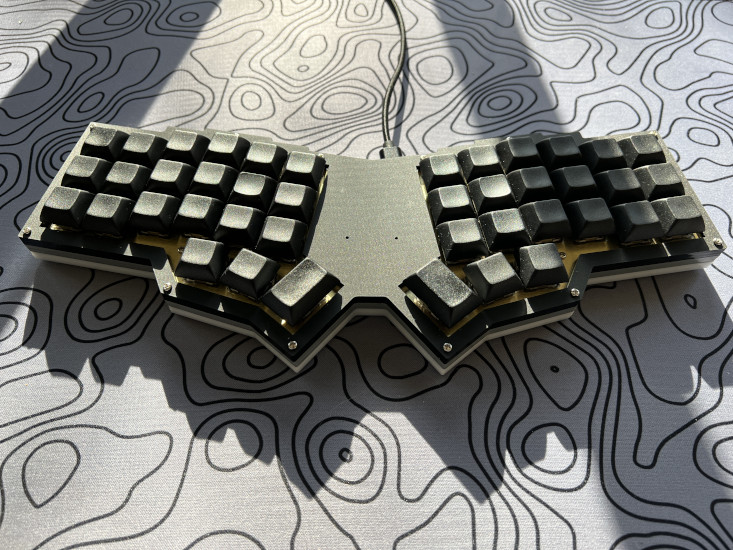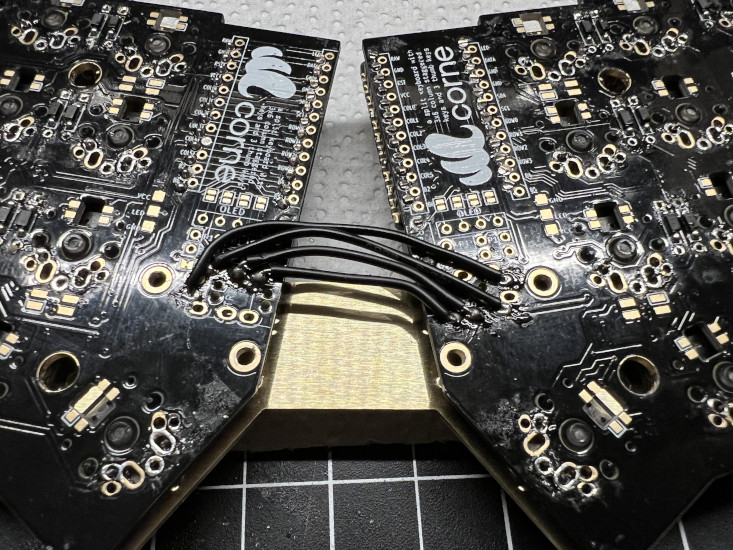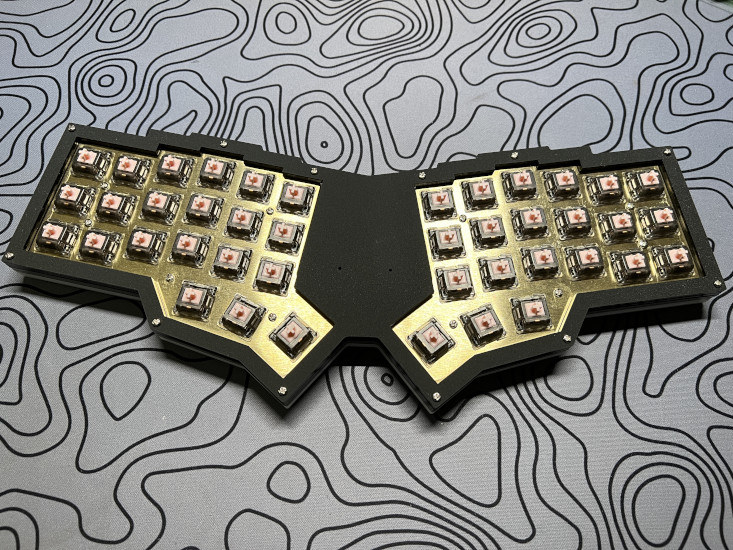Con Corne
My 42-key monoblock ergonomic keyboard
[ Updated 05-15-23 | Created 04-23-22 ]
Revision 2 (Early 2023)
Built a second one to keep at work (instead of using Corne LP split). Revision 2 changes consist of:
- Full plate to cover microcontrollers
- Inverted microcontrollers on Corne Classic PCB
- The microcontrollers are soldered upside-down (chip-side up) to the “bottom” holes in order to fit the full plate design.
- Revised top layer which blocks the bottom screw
- Reset buttons facing the bottom of the board
- Revised bottom layer with holes to access button
Not pictured is the foam wrist rests (x2) which I cut from hand.
Anticipated changes for revision 3:
- Proper wrist rest, either:
- integrated on bottom layer
- slide-in to bottom layer (like current, but more solid and permanent)
- Corne LP support
Revision 1 (Early 2022)
I have enjoyed using the Corne keyboard for almost a year now. The key count and layout have been easy to work with and I type much more comfortably and efficiently than on a standard ANSI board. My biggest gripe with the Corne are the split halves; although I understand the practicality of seperate halves, I much prefer a fixed and consistent layout. Sometimes I would align the halves comfortably without much effort, but frequently I would take time to adjust each half after moving the board around my desk. Creating a conjoined case gave me a comfortable position each time with the added benefit of the halves sitting closer together in the absence of the TRRS cable.
The halves sit a few millimeters apart, each angled 10 degrees from the center. I wouldn’t have minded a slightly larger angle given the spacing between the halves but the current positioning is plenty comfortable. The outer case consists of six acrylic layers while the two halves share a brass switch plate that connects to the bottom acrylic layer. Each half is connected directly with wires in place of the jacks and TRRS cable. I also opted for plate and case foam to dampen as much sound as possible.
The switches are spring-swapped 35g Silent Alpacas lubed with Krytox 205g0. The keycaps are PBT DSA blank keycaps; nothing special, but they get the job done.
Overall I’m very satisfied with the project. I finally have a premium ergonomic keyboard and I’m proud to have designed the case myself.
Tagged: Keyboards Soldering Ergonomics



